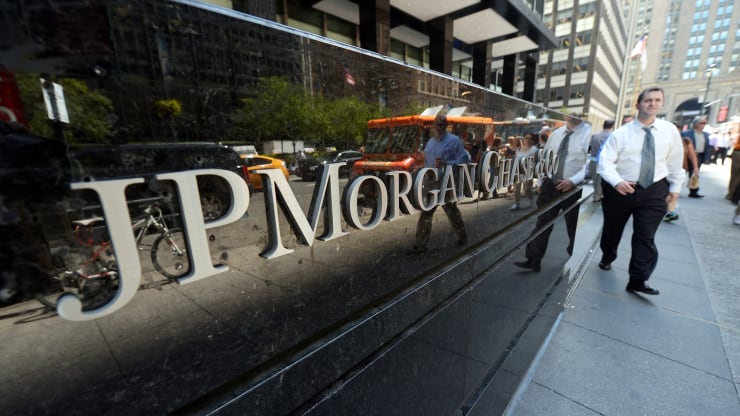J.P. Morgan Chase has quietly settled a long-running lawsuit that accused the bank of manipulating precious metals markets with “spoofing” trades.
And the bank is set to pay $920 million to resolve government investigations for similar alleged conduct in the precious metals and Treasury futures markets, CNBC has learned.

Source: CNBC
A penalty of that size would be a record for spoofing, which is the act of placing a buy or sell order with no intention to actually execute the transaction.
The goal of spoofing is to move market prices in a way that financially benefits the trader’s preexisting positions in the market.
Spoofing was banned as part of the Dodd-Frank financial reform law after the 2008 financial crisis. In recent years, regulators and federal prosecutors have cracked down on suspected spoofing, issuing fines or filing criminal charges in a number of cases.
J.P. Morgan, which declined to comment for this article, long has denied engaging in spoofing.
The spoofing lawsuit filed against J.P. Morgan in U.S. District Court in Manhattan, which court documents reveal was settled this summer, was filed in 2015 by Daniel Shak, the colorful hedge fund operator and high-stakes poker player, and two metals traders, Mark Grumet and Thomas Wacker.
Details of the settlement were not disclosed in court filings.
David Kovel, attorney for Shak, Grumet and Wacker, declined to comment on the settlement.
The three plaintiffs had accused J. P. Morgan of manipulating the silver futures market from 2010 through 2011 through spoofing trades.
The three claimed they lost tens of millions of dollars as a result of the actions of J.P. Morgan traders.
The bank for years denied the allegations, and in 2016 succeeded in getting the plaintiffs’s claims dismissed by a judge. Kovel then appealed that decision, and got the case reopened in 2017.
As the case was pending in November 2018, a guilty plea in a criminal case related to spoofing trades by John Edmonds, a former precious metals trader at J.P. Morgan, drew the attention of Kovel.
In his plea in Connecticut federal court, Edmonds admitted that he, along with other “unnamed co-conspirators” at the bank, manipulated the prices of gold, silver, platinum and palladium futures contracts from 2009 to 2015.
Edmonds said he learned how to make bogus trade orders from senior traders at the bank — and that he used the strategy hundreds of times with the knowledge and consent of supervisors. As part of his guilty plea, Edmonds agreed to cooperate with prosecutors in investigations.
Kovel told CNBC at the time that he was struck by how much in common his lawsuit against J. P. Morgan had with the criminal conduct admitted by Edmonds.
Kovel then sought permission from the judge in his suit to reopen depositions he had taken as part of the case from of two former J.P. Morgan traders, including Edmonds, as well as from Michael Nowak, who at the time still was the bank’s global head of base and precious metals trading.
Shortly after Kovel made that request, the Justice Department asked the judge in the civil suit to put the case on hold as criminal investigation into J.P. Morgan’s precious metals desk continued. Prosecutors said the depositions, if reopened, could interfere with their probe.
That stay was granted last Nov. 30, and multiple extensions were granted over the following months. The settlement of the civil case this summer came before Kovel got another crack at questioning the former traders in reopened depositions.
In September 2019, federal prosecutors charged Nowak and two other former J.P. Morgan precious metals traders, Gregg Smith and Christopher Jordan, with participating in a racketeering conspiracy in connection with a multiyear scheme to manipulate the markets and defraud customers, as well as other crimes related to alleged spoofing..
A superseding indictment was filed in the criminal case two months later, adding another defendant, ex-J.P. Morgan executive Jeffrey Ruffo, who had worked in hedge fund sales on the firm’s precious metals desk.
All four defendants have pleaded not guilty. Trial in that case is scheduled to begin next April in Chicago federal court.
Although Shak’s lawsuit has been settled, J.P. Morgan still faces a class action lawsuit related to alleged spoofing in the precious metals markets.
Proceedings in that suit, which pending in Manhattan federal court, have been suspended until at least May 31 at the request of federal prosecutors, who wanted to avoid interference with the upcoming criminal trial in Chicago.

